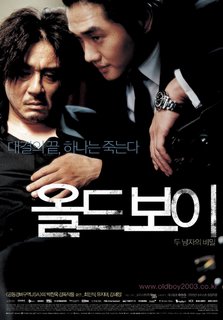Michael Haneke's Cache (Hidden)
One film I have been eagerly waiting to see is Michael Haneke's Cache. It was shown in competition in this year's Cannes film festival, where it won the best director prize for Haneke and along with Cronenberg's A History of Violence(which I saw last month and which is a great film, although slightly disappointing and "mainstream" by Cronenberg's standards), was surely the most talked about film there. Haneke is the current bash-the-bourgeois film maker of Europe, a mantle he seems to have inherited from the likes of Bunuel, only that his mood is very Teutonic, always glum and totally humourless (very unlike Bunuel). Actually, Haneke has said publicly somewhere that he would never ever make a comedy!
Anyway, Film Comment has a long article on his latest film. It disses one of my favourite contemporary film maker on its way to lionize Haneke (Lars von Trier makes "political cartoons"!). Nevertheless, it is a good summary of his career so far and tries to place his latest film in the context of recent political developments in the west.
Since his first theatrical feature in 1989, The Seventh Continent, German-born Michael Haneke has dispensed post-9/11 visions of violent, benumbed swatches of middle-class society on the brink of dissolution. Four years and numerous debacles after the onset of our apocalyptic era, it is increasingly clear that in our heads—as, for the most part, comfortable, educated, anxious urbanites who also constitute the prime audience for Euro art cinema —we inhabit the same unremittingly bleak, paranoid landscape within which Haneke conducts his nasty business. It is a place we would call home only under duress. Hidden (Cache), his latest and arguably most accomplished provocation, revolves around central characters and a plot predicament that —despite being set in an unnamed French city —feels terrifyingly familiar. That's the operative word, terrifying.
The whole article here.
A good account of Haneke's career and his past films can be found here. Senses of Cinema profile here.





